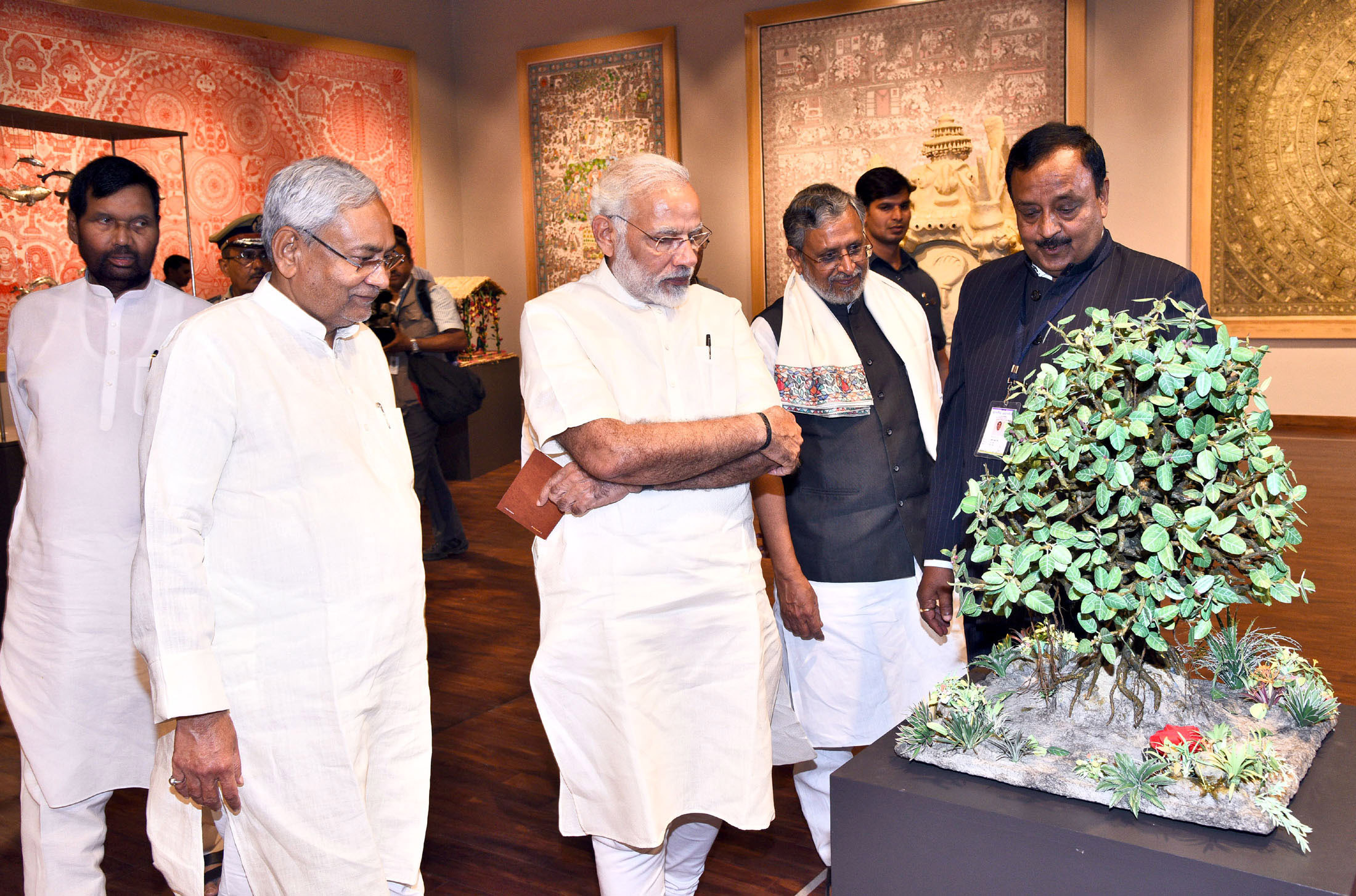By Arun Srivastava
At a public rally in Bhagalpur on Monday, Narendra Modi referred to Nitish Kumar as his “Ladle” (or pampered child), which marks a significant shift in Kumar’s political stature in his home state of Bihar, moving away from an image of strength and astuteness. This rally did not favor Nitish; instead, it reinforced perceptions within the political community, particularly among JD(U) leaders, that he has capitulated to Modi and lost his previously formidable status.
The perception was further supported when Nishant Kumar, Nitish’s son, encouraged the people of Bihar to vote for his father, asserting that he has contributed significantly to the state’s development. Moreover, Nishant suggested that Modi should endorse Nitish as the chief ministerial candidate and that the government should be reinstated under his leadership. His suggestion to JD(U) leaders to position Nitish as the public face of the NDA in the upcoming assembly elections has been shocking to many.
Modi’s characterization of Nitish as “Ladle” has been controversial, sparking criticism among academics and intellectuals not just in Bihar but also among the Bihari diaspora in Delhi. They perceive it as a calculated effort to diminish Nitish’s standing, framing him as a lesser leader reliant on the BJP and Modi for survival. This is viewed as a tactic by the saffron faction to undermine someone considered astute in today’s political landscape, diminishing his perceived value.
Nishant’s calls for support are seen as an indication of his aspirations to join JD(U) and a desire to engage in politics. However, veteran political figures question his ability to rally support and suggest that his statements reflect Nitish’s inability to assert himself against BJP leaders, alongside a struggle to unify JD(U) members. Nishant’s remarks further suggest a fractured party needing a neutral mediator, a role he seems positioned to fill.
On Tuesday, after honoring his late mother in Patna where Chief Minister Nitish Kumar was present, Nishant praised Modi for his contributions while urging the public to support Nitish. He stated, “I call upon the people of Bihar to vote for Nitish Kumar, as his development work is significant. The public must ensure more seats are secured so we can sustain our progress.” He particularly encouraged the youth to back his father to increase assembly representation.
The situation has become so fragile politically that Nitish appears unconcerned about accusations of dynastic politics, a practice he previously criticized. Experts suggest that if Nishant enters the political arena, it could embarrass Nitish further, especially as the pressure multiplies from Tejashvi Yadav, son of RJD chief Lalu Yadav.
Nishant’s appeal comes against the backdrop of Amit Shah’s reluctance to affirm Nitish as the NDA’s public face. Months earlier, Shah declined to disclose whether Nitish would be the chief ministerial candidate, similar to the BJP’s strategy in Maharashtra, which saw a leadership change after elections.
While it remains uncertain if Nishant can compete with Tejashvi, he may serve as a counter to criticisms and mockery. RJD spokesperson Shakti Yadav described this as a sign of Nitish’s declining credibility, suggesting it might be better for him to transfer leadership to Nishant.
Despite Modi’s acknowledgment of Nitish as “Ladle,” he failed to highlight Nitish’s contributions to Bihar, choosing instead to promote his own projects. Modi’s discourse focused on his achievements, while Nitish detailed his own initiatives for the welfare of the poor.
Modi also concentrated on criticizing Lalu, stating that individuals involved in the fodder scam could not empathize with farmers. This strategy may have inadvertently bolstered Lalu’s public image, solidifying his portrayal as a secular leader. Analysts believe Modi’s approach has backfired, particularly as farmers feel let down by the government’s unmet demands for support prices.
Critics argue that Modi erred in claiming that the NDA government led by Nitish eradicated corruption, asserting that corruption continues to thrive in Bihar, with societal conditions characterized by rampant graft and organized crime. While announcing financial aid for farmers, Modi noted that they require adequate seeds, affordable fertilizers, and disaster protection—basic needs that continue to be unmet.
Discontent also exists among top BJP officials over Modi’s failure to address requests for special status for Bihar, a promise made earlier. The Bihar assembly had unanimously called for this status, echoing a commitment from Modi for significant funding for infrastructural projects, many of which remain incomplete.
Since Modi became prime minister in 2014, Nitish has sought central university status for Patna University, to no avail. Instead, Modi proposed a new university in Vikramshila, highlighting ongoing oversights in addressing basic challenges faced by Bihar’s populace, which ranks as India’s poorest according to various indices.
Ultimately, it is clear that Modi lacks a grasp of the intricate political landscape. His rhetoric about “jungle raj” hints at a misunderstanding of public sentiment, where even former adversaries of Lalu have begun to reevaluate his role in the fodder scam, believing he was wrongfully implicated by two now-marginalized BJP leaders. This disconnect underlines a significant gap in Modi’s political strategy in Bihar. (IPA Service)


Leave a Reply